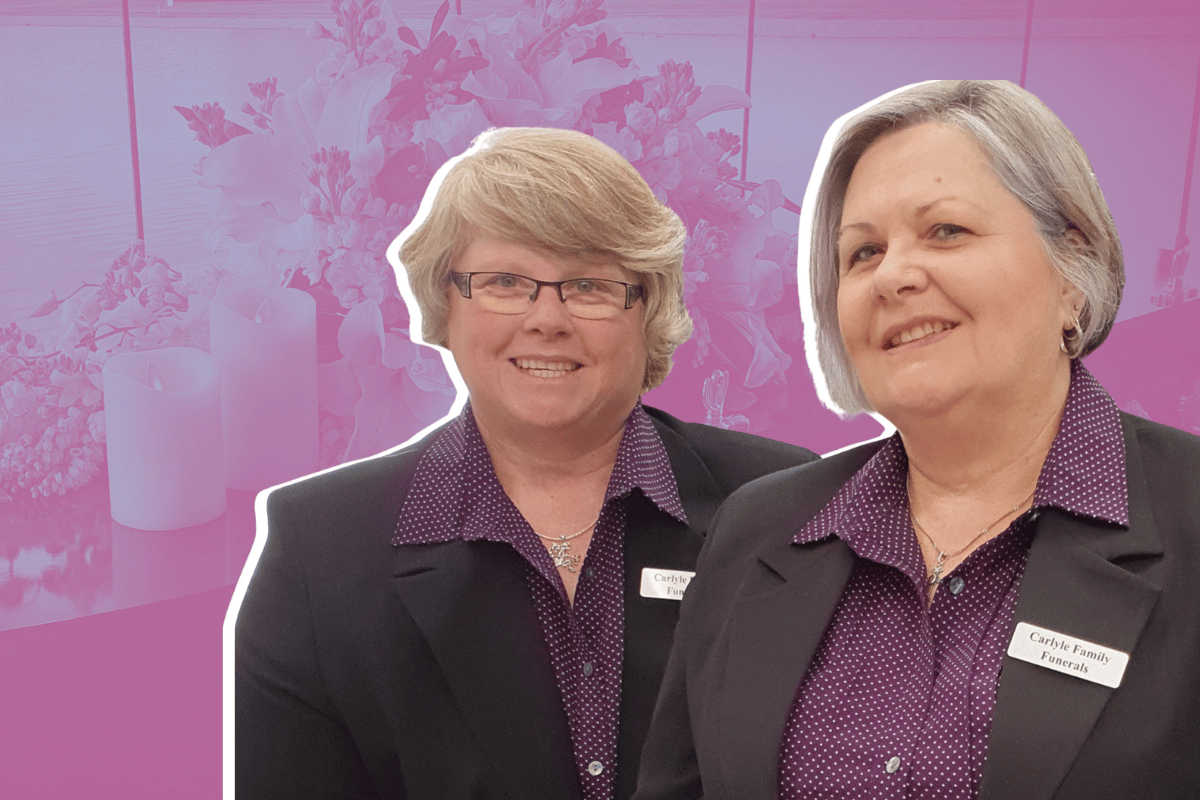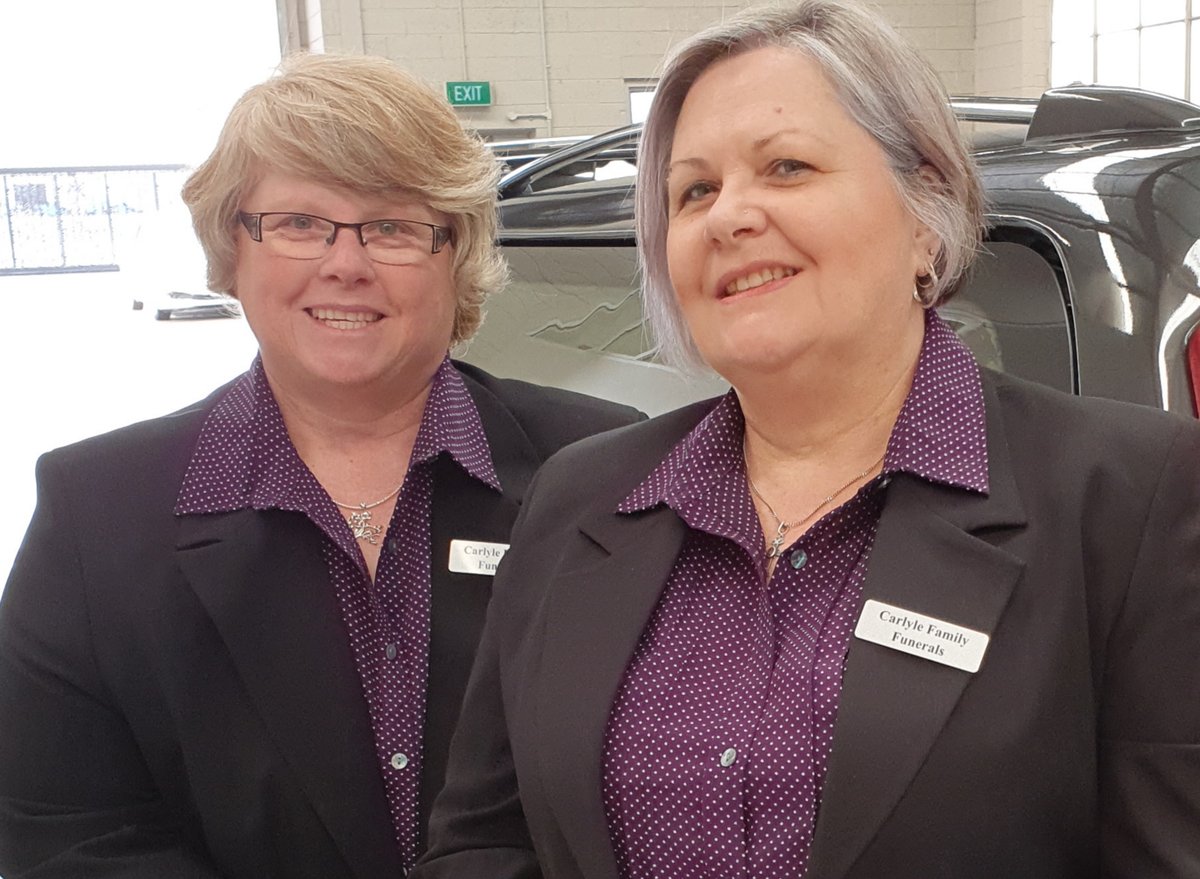
Meagan and Deb are on call 24/7.
"I'm always glued to my phone. If one of us is going out, then the other one is always available," Meagan, 54, told Mamamia.
The pair own and operate Carlyle Family Funerals in Melbourne and need to be ready to help a grieving family at a moment's notice.
"People will pass at two or three in the morning in a nursing home, or they might have been in palliative care at home. And they need to be looked after, and they need to be taken into care."
From the moment they receive that 'first call', the arrangements begin.
"The call is the first point of contact the family makes with us. We take a few details and then we organise a transfer into care from where their loved ones passed way."
"Once the transfer is organised, I arrange to meet with the family. And that's when we sit down and really talk about what they want with regards to a funeral, burial or cremation."
From there, Meagan and Deb arrange everything from the candles to the flowers, to dressing the body. A squeamish job for some, but for Meagan and Deb, it's a great privilege.
"It's honesty an honour to look after people because families are trusting you with their most precious loved ones... They're someone's mum, someone's grandma, someone's dad and you need to take care of them."
"You don't see them as dead people. You see them very much for who they are."
The pair make sure the person is washed, dried and dressed properly. A cloth is also used to cover the torso so the person's "dignity is kept in check".































































































